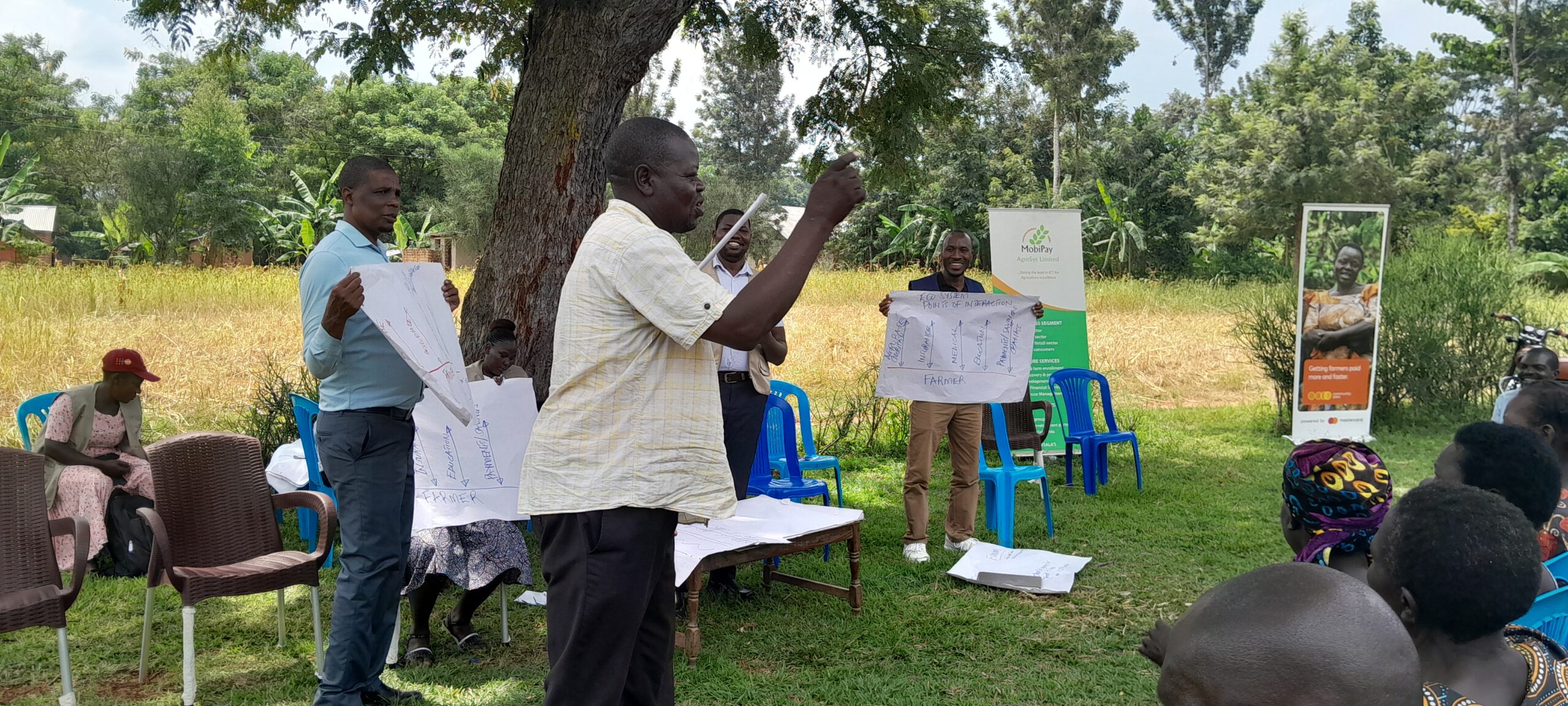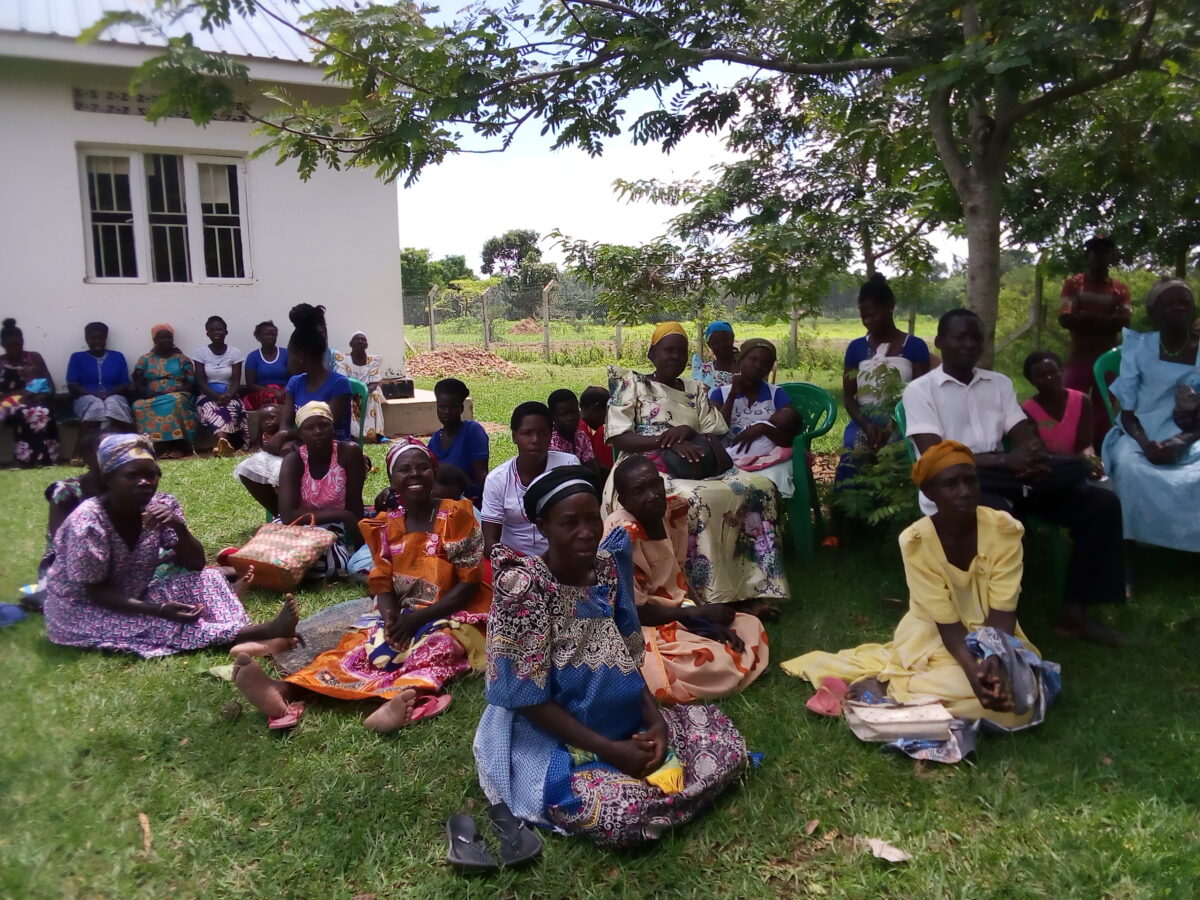In Agola Parish, Rubongi Sub-county, lives a dedicated pastor and farmer, Mr. Owino Steven. At 45 years old, Owino has worn many hats—spiritual leader, husband, and now a passionate advocate for sustainable farming. While his pastoral work filled his days with purpose, it often left his family financially vulnerable. However, joining the Forest Garden Project in 2023 became the turning point that transformed his life, his family’s well-being, and his role in the community.
The Challenges Before the Forest Garden Project
Before the Forest Garden Project, Owino faced significant challenges. His small pineapple farm was vulnerable to theft, and his crops were often destroyed by stray animals like goats and cows. Balancing pastoral duties with farming meant limited time for agricultural activities, which led to low yields and an inconsistent income. Moreover, he had never ventured into vegetable farming, missing out on the nutritional and financial benefits it could provide.
Why Owino Joined the Project
When Owino learned about the Forest Garden Project, he saw an opportunity to address his challenges and empower his family. He joined with three key goals in mind:
- Empowering His Wife: Owino wanted to create a sustainable source of income for his wife, ensuring she could support the family in his absence.
- Learning New Skills: The prospect of technical training and exposure to agroforestry practices excited him.
- Building a Stable Income: As pastoral earnings were unpredictable, Owino aimed to diversify his income and provide financial stability for his family.
Implementing Forest Garden Techniques
Under the guidance of the Forest Garden Project, Owino embraced several transformative practices:
- Green Walls: He planted agroforestry trees like Calliandra to protect his crops from wind, soil erosion, and stray animals.
- Permagardens: He began growing a variety of vegetables, including sukuma, onions, eggplants, and green peppers.
- Crop Diversification and Rotation: Owino adopted intercropping techniques, planting maize, beans, cassava, and vegetables on the same land to maximize productivity.
- Soil Amendments: By using natural methods like adding cow dung and wood ash, Owino improved the fertility of his land.
The Transformative Impact
The results of Owino’s hard work and the project’s support have been remarkable.
Agricultural Success
Owino has transformed his once vulnerable land into a thriving farm. He now grows a variety of crops and vegetables, resulting in higher yields. His family has access to fresh, nutritious food, and surplus harvests generate income.
Environmental Benefits
The green walls have significantly reduced soil erosion and wind damage to his crops. Stray animals no longer destroy his plants, and the trees provide fodder for his livestock. Owino’s agroforestry practices have turned his once-bare land into a lush, sustainable environment.
Financial Stability
By selling vegetables, Owino has created a steady income stream. He no longer struggles to buy books and pens for his children or pay their school fees on time. The extra income also allows him to occasionally treat his family to meat, diversifying their diet.
Family Empowerment
With his wife managing the farm in his absence, Owino can fulfill his pastoral duties without worry. His wife’s active involvement has turned farming into a shared family responsibility, fostering teamwork and resilience.
Personal Growth and Community Leadership
Owino’s success has also elevated his standing in the community. As a pastor, he now leads by example, demonstrating the value of hard work and sustainable farming practices. His family’s improved nutrition and self-sufficiency have inspired others to explore agroforestry as a viable solution to their own challenges.
Looking to the Future
Owino has big plans for his forest garden. He intends to complete his green wall, expand his vegetable varieties, and plant timber trees to secure a long-term income source. His dream is to create a lush, self-sustaining farm that provides firewood, fodder, and food for his family, while continuing to serve as an example for others.
Owino’s Words
“I no longer sleep hungry because I have vegetables. My expenses have reduced since I no longer buy sauce. Out of the sales, I buy meat and school supplies for my children. Firewood is no longer a problem, and my animals feed on Calliandra leaves. The project has really changed my life.”
Conclusion
Through the Forest Garden Project, Owino Steven has not only secured his family’s future but also proven that sustainable farming is a path to resilience and prosperity. By addressing agricultural challenges and empowering his family, Owino embodies LERWA’s mission of fostering sustainable livelihoods and environmental stewardship. His journey is a powerful testament to the transformative potential of knowledge, hard work, and the right opportunities.


